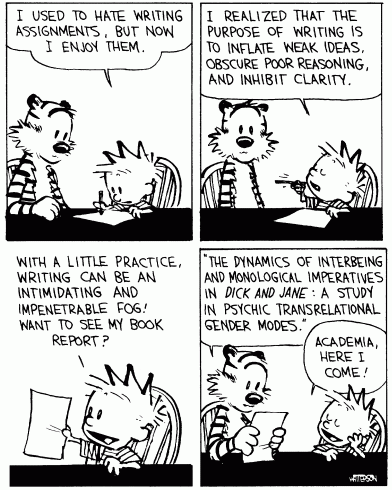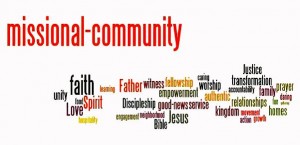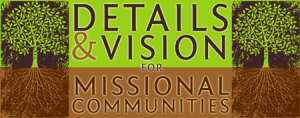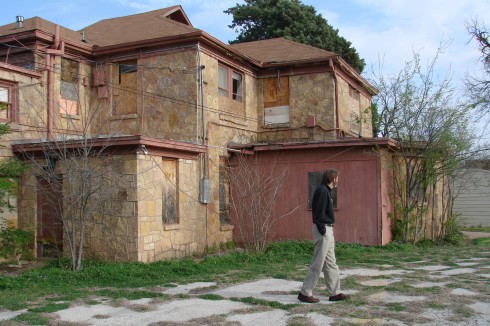This paper, an assignment for Chris Flanders’ Foundations of Missiology class, is a reflection on the issues of leadership and power in relation to missions. Beginning with a more theoretical discussion of the topic, it proceeds into a personal reflection on how my thoughts intersect my life at the moment. I believe that this paper and what it represents are a good indication of progress towards outcomes 3a, 4a, 6bc, 8ab, and 10abc.
A discussion of leadership and power is important for all of us as Christians and ministers of the gospel. While this paper is far from a complete treatment, it can be seen as a beginning foray into those issues. How does the identity of a minister relate to the mission of God and the specific context in which God has placed him or her? How is God at work? What is the relationship between the gospel, the church’s mission, and power? How does (or how should) our use of power influence the message of the gospel? And what would a revised understanding of power in leadership mean for the practices of discipleship and evangelism? Seeking initial answers to those questions, or at least seeking the further challenges brought about by those questions, this paper is an attempt to get at the indicators of outcomes 3a, 6bc, 8ab.
And while there was not nearly enough room in a 4-5 page assignment to explore all of those questions fully, I believe that this paper is good preparation for continued investigation and reflection in the years to come. As I look at the issues of power and leadership, I begin to contemplate and address how they intersect my own life, character, dreams, and plans. Therefore, this paper is also an exploration of my own ministerial identity and theological commitments, as well as an attempt to live in a way that conforms to that identity and those commitments (4a, 10).
Here is the text of the paper:
If power is “the ability to produce intended effects in the world,” as Shuster is quoted as describing it (Lingenfelter 107), then we must acknowledge that all humans have power in one form or another, whether power over their own body, power over their surroundings, or power in relationship (as all relationships entail some measure of power). Each of us undeniably has the ability to produce some intended effect. The concern, then, is not whether or not we actually have power as humans. The concern is how (or if) we can appropriately use power as Christians. This is a difficult issue for all of us to attend to, but—full of theological significance as it is—it is an especially pertinent and ever-present question in the life of the missionary and must be discerned carefully so that we as ministers might be faithful to the call of God on our lives.
Missionaries are, according to the prevailing understanding of their work, often placed in relationships of leadership and power-wielding. This dominant view of mission work emphasizes the missionary as a central figure who, because of the significance of her position, appropriately holds certain forms of power in her leadership. She is typically looked upon as the one bringing the gospel of Christ to those who are in need of it. This perception of missions places the missionary in a privileged position. She has a commodity which someone else lacks—knowledge of the gospel; with that commodity in her possession, she holds power (incomplete as it may be) over their fate.
With this understanding of the missionary vocation in place, leadership will certainly entail a purposeful use of power as well. It will be argued that power is not inherently bad; one must only be sure to handle it wisely and in a Christlike manner. Rather than being used with bad motives, to take advantage of others, hoarded, or abused, it should be employed in the humble, self-emptying, others-serving way of Jesus. Power in leadership should be used to disciple and enable other individuals, to help and defend those who are helpless and defenseless, and it should always be exerted humbly, as we seek direction and correction from God and from those around us. Leaders may use power to achieve their aims, to bring about their intended effects for their world, but it should always be benevolent power.
I would argue, however, that we could go one step further in bettering our understanding of the use of power in Christian leadership. While the above kind of charitable implementation of power in leadership is adequate enough for the anthropocentric definition of the missionary role that it is based upon, it clashes somewhat with a more theocentric view of missions. Redefining missions by placing God—not the missionary—back at the center of power and leadership has momentous implications for how both power and leadership are interpreted and implemented by the missionary.
What would it look like to recognize God as the undisputed center of our understanding of mission work (and ministry of any sort)? It would require clearing the way for God to act by removing the missionary from that preeminent position. Humbly stepping aside and giving up his position as the supposed driving force behind the vision and the work, the missionary must confess God as the only source of vision and of power. Admitting that he is merely a disciple himself, a leader only in that he is a follower of the true leader (1 Cor 1:11), any power he does have will be understood as a gift from God, requiring responsibility back to God for how he uses it. So instead of working in his own power to bring about his own desires, he will be able to relinquish the power and control he grasps for (even if unconsciously). The missionary will surrender himself to God’s power, allowing God to produce the effects God intends in and for the world; he is merely along for the ride, acting faithfully to the call and the opportunities God places in front of him.
If mission work is understood this way, with God as both the source of power and the leadership behind the spread of the gospel, the question remains for us as Christians and as missionaries: should we, as followers of Christ, seek or employ any power of our own in our leadership? Seeking power is out of the question, in my mind. For if God himself did not seek power but instead gave it up, becoming like a slave for our sake (Phil 2), what justification do we have to seek power? Again, we cannot deny that we each already have and use some form of power. That is inherent in our relational existence as human beings. But what should our response to that power be? At the very least, I believe that it should reflect the benevolent power described earlier, with each of us acting as a power-giving leader, to use the terms of Lingenfelter. Even better, our response should reflect our acknowledgement of God as the continual source of power for the extension of the good news to the world. We should be power-reinstating servants, placing power back in the hands of our God, where it truly belongs and serving only as God calls us. Then we as missionaries will be able to lay down the immense burdens we have taken on ourselves, trusting in God to accomplish God’s purposes in God’s time and in God’s way.
So how does this all connect with my life? Why my interest in this redefinition of mission work and my insistence on God as the only source of power and leadership? Honestly, it comes from the experience of being completely humbled by what God has been doing in my life recently. I have been blessed to witness God at work in mighty ways to bring about ministry opportunities I never would have imagined. And throughout the process, it has been very clear that it is God in control, not me or anyone else. The experience has called into question some of the assumptions I had previously lived by and has necessitated a restructuring of how I think.
The story begins about one month ago, when it became clear that a group of seven people were being led by God into closer relationship with one another for the purpose of glorifying God in ministry. As we started to dream together about the possibility of living in covenant community and ministering to a neglected neighborhood here in Abilene, God’s hand was clearly at work to guide us. Very quickly, our dream—already seemingly large enough to us—was taken out of our own inadequate hands, and God began to lead us on an adventure in which we had to hustle merely to stay caught up! Placing person after person and opportunity after opportunity in front of us in perfect sequence, usually before we even knew what their significance would be, God has led us to a specific people and neighborhood in Abilene and even to a particular place within that neighborhood, the abandoned St. Ann’s Hospital. The stories of God obviously at work are too numerous to recount here, but suffice it to say that our group has been reminded over and over again that we are not in control of this process, that God is the power leading us.
The humility that has been unavoidably evoked by our experience thus far has had numerous implications. First of all, it has been a good reminder to us as individuals and as a group of our relationship to and position before God. We are continually prompted to confess that God is the only true source of power, that we are nothing but tools in God’s hands, and often inept ones at that. Secondly, given the way that God has been leading us in very definite ways very quickly, all of us are hesitant to arrogantly and foolishly run ahead of God by claiming any vision or power for ourselves. We wait on God. We place our lives within God’s hands, surrendering ourselves to God’s power and plan. And God does not disappoint. We are invariably given what we need when we need it.
Additionally, the humble position in which God has placed us has caused us to reconsider our own roles as “leaders” within God’s vision for our group and our ministry. This is perhaps the result most directly related to mission work and ministry in general. Since we are not able to claim this vision and power as our own (for it is obviously beyond us!), we are compelled to look for God at work everywhere and in everyone. Again, we are leaders only in that we are following God, and even that is through no merit of our own. The title and practice of “leadership” are transformed in a revolutionary way, with any power and privilege attributed to God alone. Seeking no power for ourselves, we also put measures in place to ensure that we are kept accountable to the standard of benevolent power and power-giving leadership as we do use the power that we inherently have. More than this, though, we seek to be power-reinstating servants, relinquishing power back into the hands of God and allowing God to lead. And from that position of submission, we are then able to be power-recognizing ministers, seeing the power of God in each person and each circumstance that we encounter. With all this in mind, we know that the dream for St. Ann’s and the surrounding community is not our dream. It is God’s dream. We merely follow behind God as we are directed, and we welcome those whom God brings alongside us as fellow power-giving, power-reinstating, power-recognizing servant “leaders.”


















